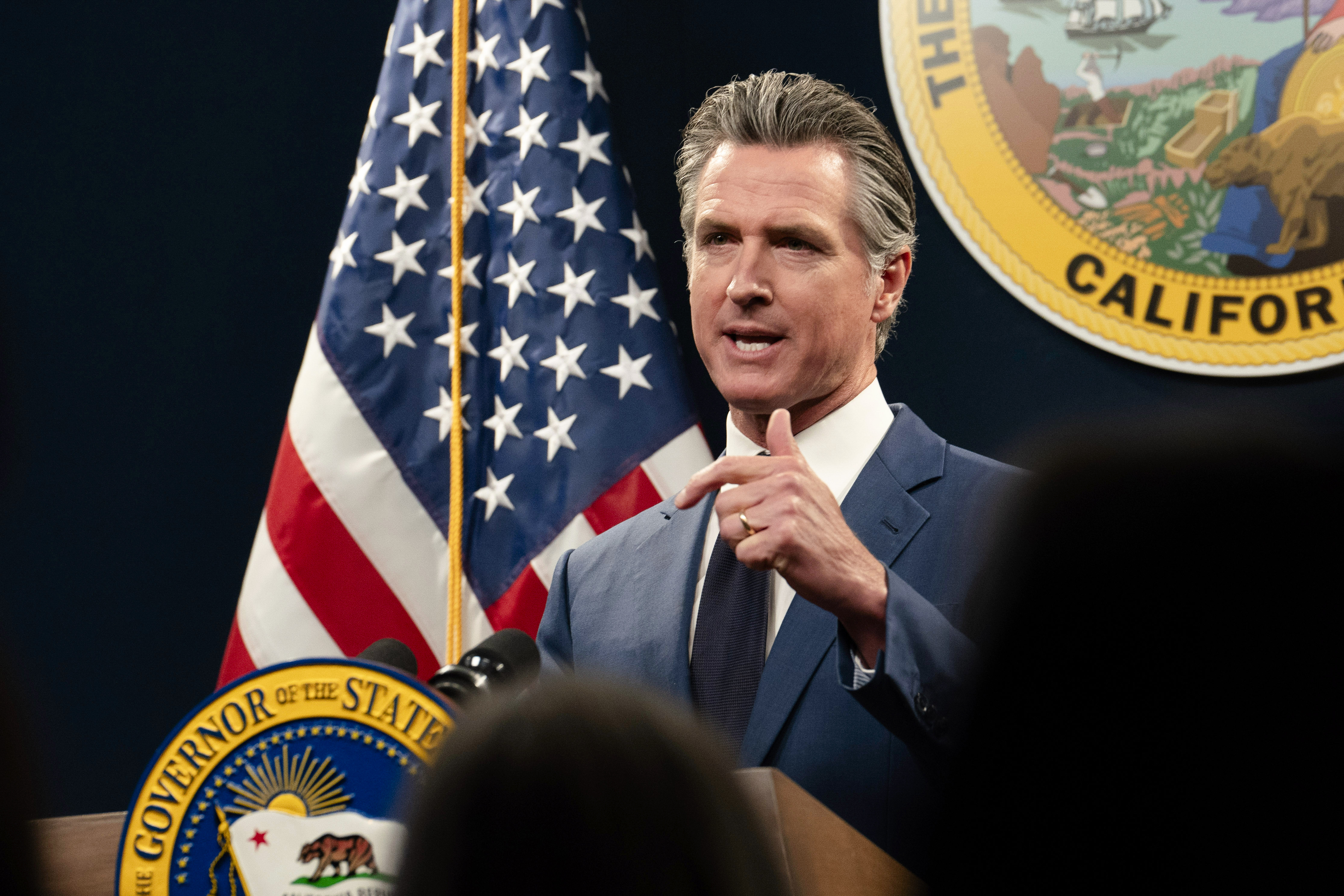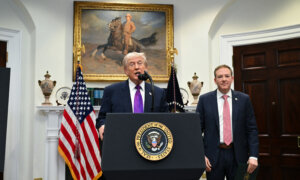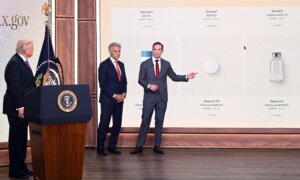After months of anticipation and repeated requests from the media about when a State of the State address would take place, California Gov. Gavin Newsom delivered his remarks June 25 via a pre-recorded video.
Slightly less than 30 minutes in length, the video touched on several topics impacting the Golden State, while also focusing on national politics.
“This year, we face another extraordinary moment in history for California, for the country, and the world,” Mr. Newsom said. “We are presented with a choice between a society that embraces our values and a world darkened by division and discrimination.”
The governor used his platform to question decisions made in Congress regarding the U.S. border and criticized the Supreme Court for its decisions on abortion and gun rights.
“The economic prosperity, health, safety, and freedom that we enjoy are under assault,” Mr. Newsom said. “Forces are threatening the very foundation of California’s success.”
He blamed “pure unadulterated partisan politics” and media outlets for focusing on negative news stories, which he said create an unfair perception of the state.
With concerns mounting over border security, he said the state is having to “go it alone” without support from federal partners.
“When it comes to the southern border, California has proven time and time again that it’s willing to tackle the hardest problems,” Mr. Newsom said.
Regarding homelessness, he acknowledged that “our work is clearly not done,” while saying the problem is not new.
“When it comes to America’s homeless problem, California’s detractors have similarly offered nothing but rhetoric, moaning, and casting blame,” Mr. Newsom said. “Too many politicians for too long have ignored this problem.”
And as crime has become a top concern for many in the state—with a ballot measure seeking to reform and strengthen criminal justice laws—he said California takes the matter seriously and is focusing on “professional theft rings” because “protecting Californians is our most important job.”
“We take it as a problem to solve, not just to flog on cable news,” Mr. Newsom said. “I recognize that we need to do more to clarify existing laws.”
Some lawmakers critical of the speech said the focus on national rather than local issues was problematic.
“He talked about national politics,” Republican state Sen. Brian Dahle said during a June 25 press conference responding to the address. “He didn’t talk about the things we’re seeing and hearing from our constituents every day.”
Highlighting issues community members tell him are important, he suggested the Legislature and the governor need to do more to address concerns.
“We have crime out of control; we have inflation out of control,” Mr. Dahle said. “This state really needs jobs, and it needs leadership.”
Another Republican lawmaker said the speech left some wanting more information about the conditions in California and efforts to improve the quality of life for residents.
“The state of the state ... is a husband and wife sitting around the kitchen table, head in hands, trying to figure out how to pay the bills. ... It’s parents who are afraid to send their kids to the local park. ... It’s human devastation on our streets in every city,” Assembly Minority Leader James Gallagher said during the same press conference.
Citing a need for oversight and accountability, he said the $24 billion spent on homelessness in the past five years made the problem worse.
“Let’s stop spending money on things that don’t even work,” Mr. Gallagher said.
The assemblyman said constituents need results—calling attention to seniors living on fixed incomes who are having trouble making ends meet—rather than political talking points.
“We’re not meeting our goals,” Mr. Gallagher said.
Cost of living and affordability crises are hurting millions of Californians, he said.
He also called for accountability for people selling fentanyl and for those committing crimes throughout the state.
As the governor’s talk was broadcast on social media, no media were present for the event, so no questions were taken to follow up on his statements.
Such has been the norm over the past several years, with the governor choosing to send a letter to the Legislature rather than deliver his remarks to lawmakers in person.














